Take a look inside Silverwater Women’s maternity ward
Every year about 100 pregnant women enter the NSW prison system. They present a unique challenge. We meet the dedicated Justice Health midwives in charge of new life behind the bars at Silverwater prison.
Police & Courts
Don't miss out on the headlines from Police & Courts. Followed categories will be added to My News.
When Sarah (not her real name) was jailed, she thought she was in the early stages of her pregnancy – it turned out she was actually in her final trimester.
She’d not received any care from doctors or nurses prior to her incarceration – and it turned out prison was in fact the best place for her and her unborn baby.
Emily (not her real name) was still breastfeeding when she was jailed, and despite the maximum security gates of Silverwater Women’s separating her from her baby, she was supported to keep pumping and providing for her child.
Just beyond the Silverwater gates are two passionate and dedicated Justice Health NSW midwives who look after these incarcerated mums-to-be from all over the state.
And they’ve made it their mission to give these women and their babies the best care possible.
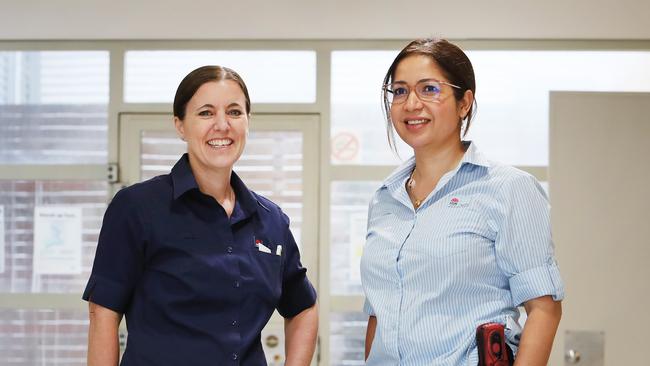
This year alone, 73 pregnant women have entered custody, while 14 others have entered the prison system not long after giving birth.
Every year, an average of just over 100 pregnant women enter the prison system.
The majority of them are in their 20s and 30s, and many of them suffer from substance abuse and addiction issues, while others aren’t aware they are pregnant or haven’t seen a doctor since suspecting they may be.
“They are in crisis by the time they come in here,” midwife Joanna Donnelly said.
“So many of these women are from disadvantaged backgrounds and pregnancy is often a side issue for them.
“If they stayed in the community they would have worse outcomes than what they do inside.”
Ms Donnelly and her colleague Yamuna Kafle work inside a small medical clinic within the prison – and while their little maternity set-up isn’t quite like a hospital – their level of care is.
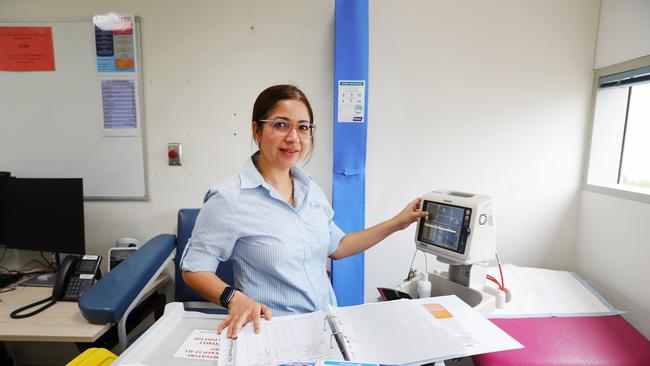
“We want to provide the best possible care to these women,” Ms Donnelly said.
“All we want is for them to be in the best position for the babies and for themselves when they are released.”
When a woman is first jailed, she undergoes a pregnancy test within the first seven days, and again after 28 days.
The midwives are notified of any pregnancies, and once a woman reaches the 20-week mark they are transferred to Silverwater where they are under the watchful eye of Ms Donnelly and Ms Kafle.
If a woman is found to be pregnant following her entry into a jail, she is checked by medical staff, and will spend up to five days within cells at the medical clinic.
The woman can be struggling with drug and alcohol issues and other illnesses – making it imperative for the midwives to properly assess and monitor the expectant mum before they are sent to the general population.
Ms Donnelly said most of these women have very low health literacy – but once they enter the prison system, they are motivated to do their best for their babies.
“They try so hard and they are so willing to do well,” she said.
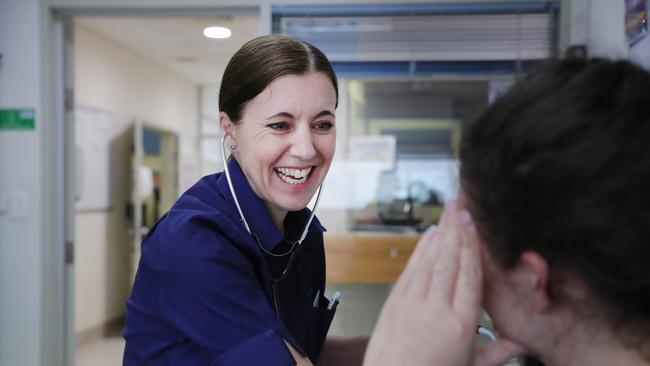
“They have a lot more motivation in here – often a lot more than what they do on the outside.”
Many even try to pick up a job within the prison so they can satisfy their pregnancy cravings through the “buy-ups” system.
Some work in the kitchen, while others work in the industry – where inmates make the passenger headphones for airlines.
While Ms Donnelly and her colleague Ms Kafle provide “the best care possible”, things are a lot more difficult behind the iron gates.
Things as simple as taking blood, injecting a vaccination or dispensing a medication are not the easy tasks they are in a medical centre.
Instead, needles are locked away, only accessible with a special set of keys, and medication is kept behind several locked doors.
Each week, the pregnant woman will visit the clinic, where her blood pressure and the baby’s heartbeat is checked.
A portable doppler is used to listen to the bub, while more intensive checks such as glucose tests and ultrasounds are done at the nearby Nepean or Westmead Hospitals.
During the Saturday Telegraph’s exclusive tour of the medical facility, one mum-to-be underwent her weekly checks with Ms Donnelly.
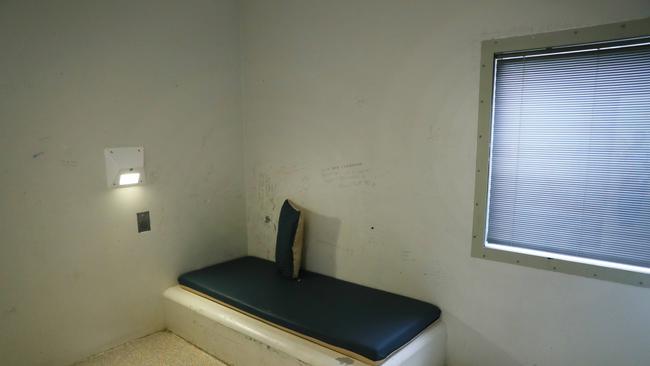
The only things that differed from a regular hospital visit were the prison greens that covered her growing bump and the fact she would return to her cell after the visit.
While being pregnant in prison is a strange experience that most wouldn’t understand — Ms Donnelly and Ms Kafle work to keep the pregnancy as normal as possible for these women — and that includes delivery.
Contrary to what many think, the babies aren’t born in a jail cell or jail clinic – they are born in a hospital like every other child – though the process to get to that point is a little different.
While the majority of women are released before they give birth, those in for a longer sentence are induced – but they aren’t told exactly when.
“We give them a 10-day window of when it will happen so they can be prepared,” Ms Kafle said. “That happens around 38 weeks.”
The reason they aren’t told the date of their induction is due to safety – they don’t want the women hatching plans to abscond while being transported to hospital.
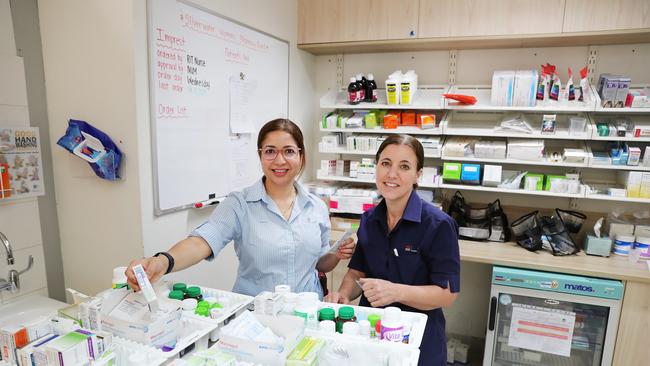
While in hospital for the delivery – they are treated like all other mums – except for the fact that two guards are with them at all times.
“They can see the baby whenever they like if they wish,” Ms Donnelly said.
“The baby is kept with mum or in the special care nursery.”
They stay in hospital for two days after they give birth, or three if they undergo a caesarean, before they are transferred back to the jail clinic cells.
The baby doesn’t come with mum if she chooses to keep it, however.
The babies are looked after by their father or family members in a third of cases, while a third of babies are placed into the care of the Department of Communities and Justice.
Once a mum returns to jail, she can have special visits with baby, and is even supported in pumping and breastfeeding by the midwives.
Emily, who was jailed shortly after giving birth, was supported by Ms Donnelly in her wishes to continue breastfeeding her baby.
She was given a breast pump and her partner visited the jail twice a week to retrieve the milk for her baby.
“All we want is for these women to feel supported and to have healthy babies,” Ms Kafle said.
“We have not had any bad health outcomes with these babies and I think that’s a testament to the good work we do here and how much we care.”





